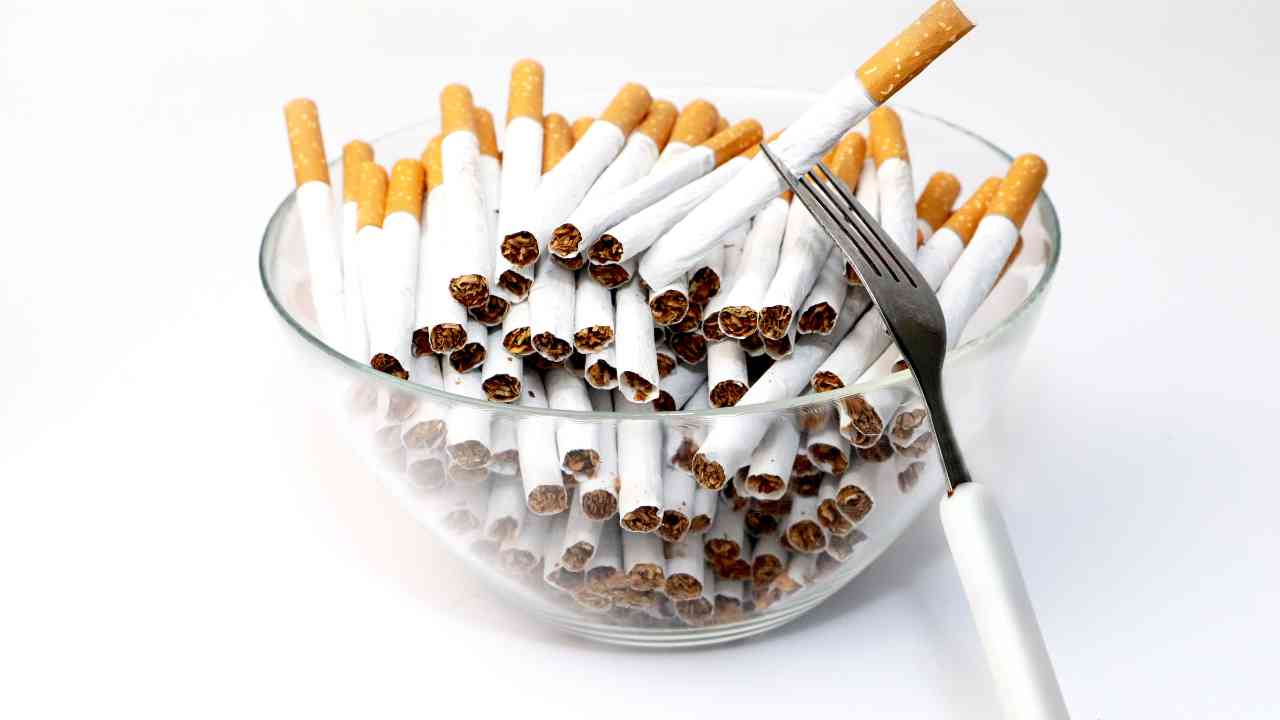Is Intuitive Eating a Good Diet for ADHD?

Intuitive eating. . . a horrible idea for people with ADHD, and, actually, most people for that matter.
Yeah, you heard me right. I think that, in most cases, the concept of intuitive eating is utter BS. So all you intuitive eating authors, speakers, nutritionists, dieticians, and coaches . . . I’m coming for you today.
Sorry not sorry.
You’re messing with people’s heads and their bodies thinking you’re doing them a favor and the tactics you’re peddling don’t work. Stop it.
You’re part of the problem.
So first of all, what is “intuitive eating” and where did it come from anyway?
Well, it’s the brainchild of two women, Elyse Resch and Evelyn Tribole.

Photo credit: Mark Abramson for the New York Times
They are both registered dieticians. They came up with the idea in the nineties after being frustrated in their work with clients.
They would put their clients on these diets and find that it just didn’t work. Of course, anyone who lived through the 90s knows that back then, especially in the U.S., it was all about low fat and calorie restriction, two things which, we now know, don’t work. So, I get it! I would have been frustrated too. They were no doubt following the instructions they were given in their professional training. So, I commend them for seeing that it wasn’t working and wanting to do something different. (1)
Unfortunately, what they came up with, was . . . kind of, well . . . they basically said, “eat whatever the hell you want. Stop dieting. Stop worrying.”
Here’s the problem with that. If we’re talking about nutritious real food that our body actually recognizes as food and has an evolutionary history of dealing with for hundreds of thousands of years, and we’re talking about food that contains things that are essential for our survival such that the body will be saying, “Ooh, thank you for that magnesium! Ooh, just what I wanted, sodium! Yippee! Saturated fat, my favorite! Protein! Finally! I’ve been waiting all day for this!” Then, yeah, I would say you have a pretty good shot of eating that food in a way that will lead to you having good health and being at a healthy weight.
However, if you’re allowing yourself to eat things that your body really doesn’t understand, and really doesn’t need, then how on earth is your body going to know when you’re satisfied?
Your ancestors didn’t have Doritos. Your body doesn’t really understand what the f*ck they are.

I don’t know about you personally, but at this moment in time, I could probably eat two and half pounds of ground beef, tops, in one sitting. I would be full, and I probably wouldn’t want much else for many hours. On the other hand, I could easily eat an entire loaf of homemade bread, some Doritos, a family-sized pack of peanut M&Ms, and wash it all down with a liter of Dr. Pepper, and then be hungry again in a few hours. And don’t ask me how I know I could do that. Painful memories.
The point is, when you’re eating crap, it creates two problems for your body. You already know this, but just in case you need to hear it again. Problem one: A lot of this stuff is addictive. So, the more you eat, the more you want. Problem two: You’re not getting the nutrition you need, so you’re never truly satisfied, no matter what.
Meanwhile, those of us with ADHD have some extra things to take into account.
We tend to have some of these issues: higher stress levels, poor sleep, issues with impulse control, a higher tendency to having addiction, larger-than-life emotions, and most of us have that lovely little beast inside of us called shame which can really mess up quite a lot of things for us.
So, if our ADHD is not well-managed, we’re operating on a - let’s just say it - somewhat broken internal regulation system. But you’re telling me to follow my feelings and eat that donut and those Doritos because I shouldn’t deny myself the pleasure of shoving complete garbage down my throat?
Seriously?
And if that wasn’t enough to convince you that intuitive eating is literally the worst diet strategy for us ADHDers, let me give you another reason.
There’s a thing called interoceptive awareness. In a nutshell, it’s understanding what’s going on inside your body. This includes your emotions, but also simple things like your thirst, your hunger, what temperature it is. Us folks with ADHD can sometimes miss our body’s own signals. For example, if you’ve ever been so busy doing something that you didn’t realize you had to pee until you were at level “Oh my God,” that’s an example of what I’m talking about.

So this idea of eating until you’re full, if we’re doing that with crap food, I posit that it can be even easier for us to miss that signal.
However, if you’re dealing with real foods, especially things like fatty cuts of red meat, for example, so something highly nutritious, your body will recognize that and will give you a clear signal when it’s had enough.
It will switch off your hunger in a dramatic way, not in a, “oh, my pants feel kind of tight maybe I should stop, oh, just one more bite” kind of way.
It’ll be like, “that’s enough, mouth. We’re done here. Meal over.”
As a former carb-crazy vegan, again former vegan, I can testify that the first time I felt this sensation after going back to meat I was like, “oh, oh . . . that’s what it feels like when you’re actually satisfied. I was just eating until I was in serious pain because I thought that that was how it worked. Whoopsies. You don’t actually have to eat until you feel like you are bleeding internally? Who knew?” because when I was on a vegan diet and later a flexitarian diet with a lot of crap in it, that’s basically when I stopped eating, when it hurt, like really hurt. Not normal.
So, now my “food intuition” is great, when the food I eat communicates properly with my body. But when it doesn’t, forget about it. Trying to intuitively eat garbage is like trying to read a book in a language you don’t speak. You don’t feel satisfied, and you eventually stop from the pain. See what I did there?
Would you tell someone to practice intuitive smoking? How about intuitive cocaine use? Sounds crazy, doesn’t it? But if you just listen to your body, it will tell you how many cigarettes it needs. It will tell you how much coke it wants. Really, people?

And here’s the thing. Again. I get where these intuitive eating folks were coming from. The diet advice that we used to get and, guess what, are still getting, because unfortunately mainstream nutrition guidelines are still pretty much recommendations that have no basis in science and are heavily influenced by industry, is pretty bad advice.
So yeah, I agree with you ladies, the standard advice doesn’t work. It doesn’t fix weight problems or other diet-related health problems. But there is diet advice that does work and has been shown to work in countless studies. So, why not work on bringing the truth to light, instead of just telling people, “eh, nothing works, so eff it, yolo, live your life?”
Now, I do agree that in general, a lot of diet culture, and fitness culture, yes I’m coming for you today too, is downright toxic. The reason it’s toxic, is because so much of the advice is wrong. And then you follow the advice and maybe it works for a few weeks, and then it doesn’t.
And what do you do? You blame yourself.
It’s me.
If only I had more willpower.
If only I were more disciplined.
Stop it.
Please listen. You don’t lack willpower. You’re being told to eat garbage that’s actually robbing you of energy. And then when you’re too tired to put on your $200 workout gear and drive to the gym to sit on a piece of equipment, you feel like it’s all your fault.
It’s not. You are being patently lied to. Some of the people who are lying to you do not know that they are giving you terrible information. It’s just what they were taught, and they’re passing it on. Some of the people who are lying to you 100% know that they are, and they’re laughing all the way to the bank.
Let me tell you a story that hopefully will make you as angry as it made me. And then you’ll see why I’m so fired up about all this.
I have a good friend who’s a physician, and her medical license is in Colombia. We were talking on the phone and I told her I had a podcast. She was inspired and told me that she’d been thinking about doing a podcast too, but wasn’t sure what to talk about. Suddenly I heard a gasp of inspiration coming from the phone. “I know!” she said, “I can use my notes from the Coca-Cola training!”
“The Coca-Cola training?” I asked, “What’s that?”
“Ah, well, Coca-Cola did this big training seminar for a bunch of us doctors in Colombia about fitness! I still have all the notes they gave me, so I can just use that.”

I was so shocked when she told me this, that I didn’t even know what to say.
Now some of you might already have figured out what’s going on here. For those of you who haven’t, let’s think about this together for a second.
Why the hell is Coca-Cola convening groups of doctors and educating them about fitness? What on earth could possibly be in it for them?
Well, let’s see. If I have a company that sells, as I’ve heard it referred to, brown diabetes water, it behooves me to not get blamed for ruining people’s health. So if I push this narrative that what you eat or drink doesn’t matter as long as you burn it off, I can sell you whatever the hell I want. And if you become obese or diabetic or both, it’s not my fault. You should’ve gone to the gym. Silly you. Check out some of the work by Dr. Robert Lustig for more on what he calls the Coca-Cola conspiracy.
Do you see how much crap we’ve been fed, pun intended?
Do you see how it’s not about willpower? Do you see how it’s not about “intuition?”
It’s about knowing what your body actually needs, and knowing that when you speak its language, meaning nutrient-dense real food that it actually recognizes, then yeah, your intuition will probably serve you just fine. Otherwise, it’s an exercise in futility.
So here I am going on and on about this, but I haven’t made any mention of data. And you know it, we gotta bring the data. So let’s see.
Does intuitive eating help with weight loss?
The answer is no. It doesn’t. I looked at two different meta-analyses and both said that it doesn’t. It doesn’t help with weight loss. (2)(3) Nor does it even improve the quality of your diet. (3) No surprise there.
So if you head on over to the internet and give it a Google, you’ll see tons and tons of content about how intuitive eating can help you lose weight. Yet, the founders themselves of this diet say that it’s not about weight loss and it was never about weight loss.
Okay, fair enough. If it’s about healing your relationship with food and nothing more and nothing less, then, guess what, studies do show that it can help with that.
It can help with things like body image and self-esteem. (4) That’s fantastic. Sincerely.
And I suppose we could extrapolate from that and say that maybe feeling better about yourself could lower your stress levels and improve your overall health in that way, but I’m just speculating here.
Meanwhile, I say, why not do work to accept your body as it is in this moment, love yourself in this moment, but at the same time, take steps to improve your health?
Why does it have to be one or the other?
Why can’t I practice self-love, and self-acceptance, but also take care of myself by giving my body what it actually needs? And by eating a proper human diet, to use the words of Dr. Ken Berry, my body will sort out a lot of its issues, intuitively.

